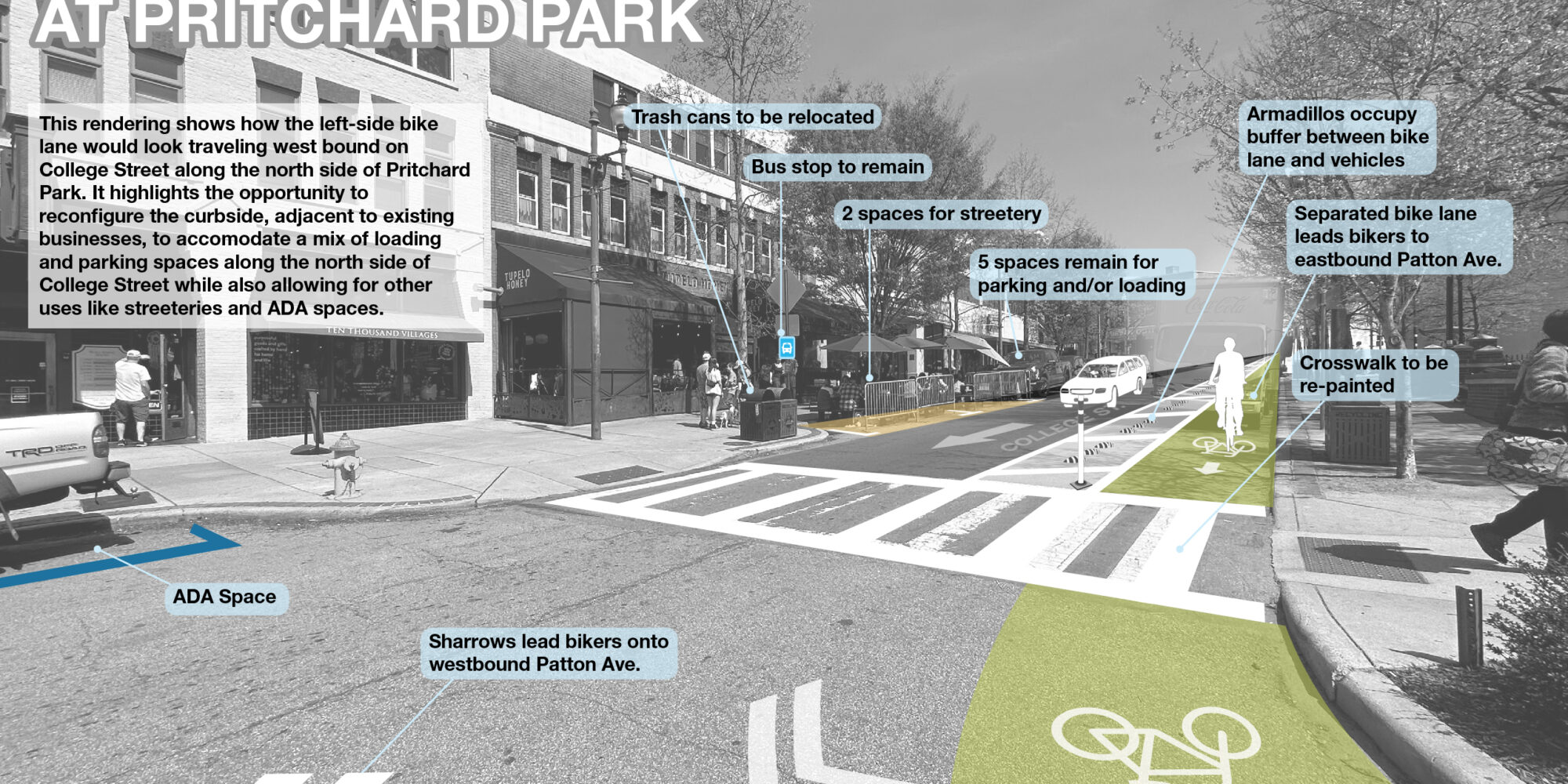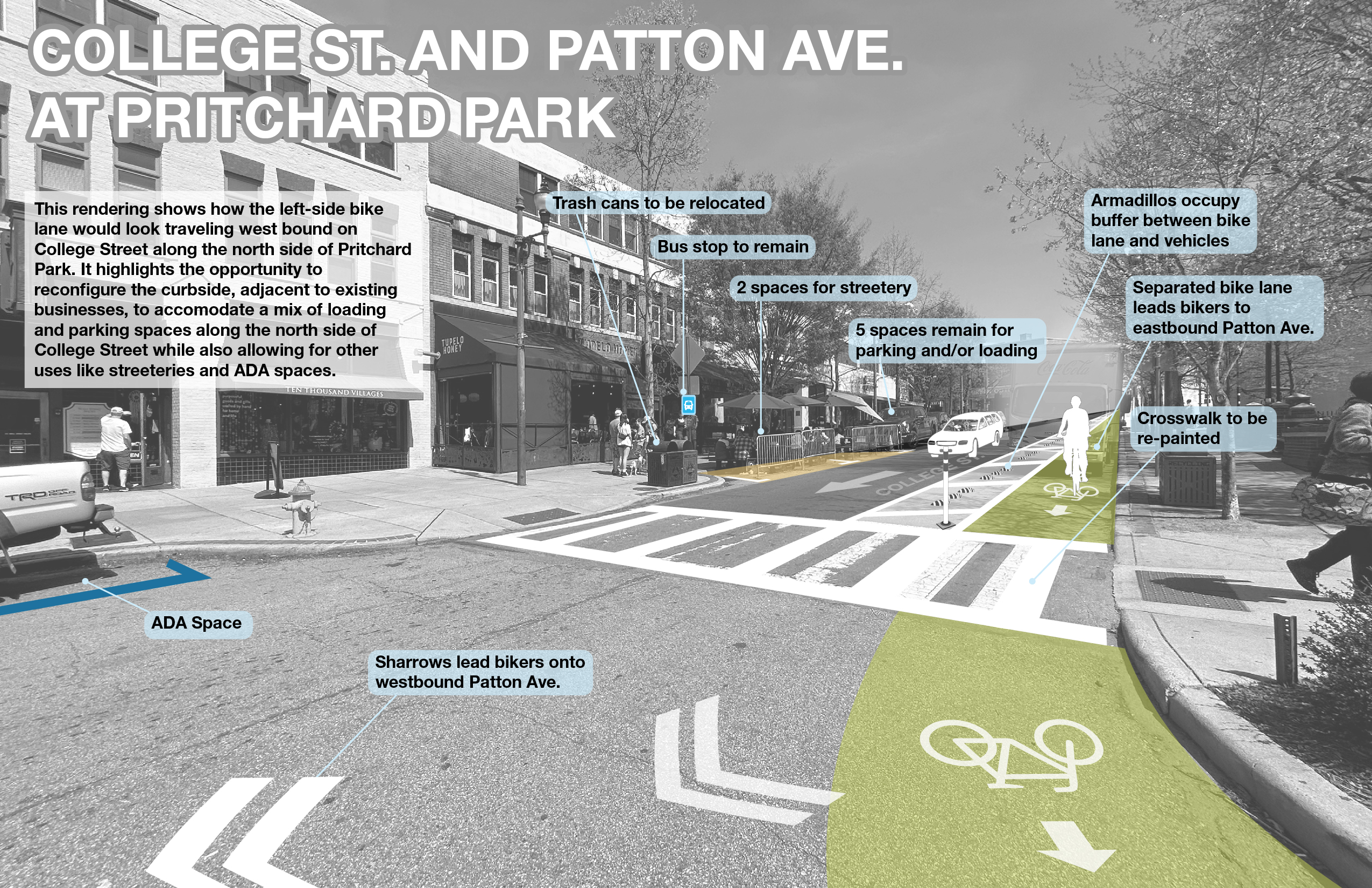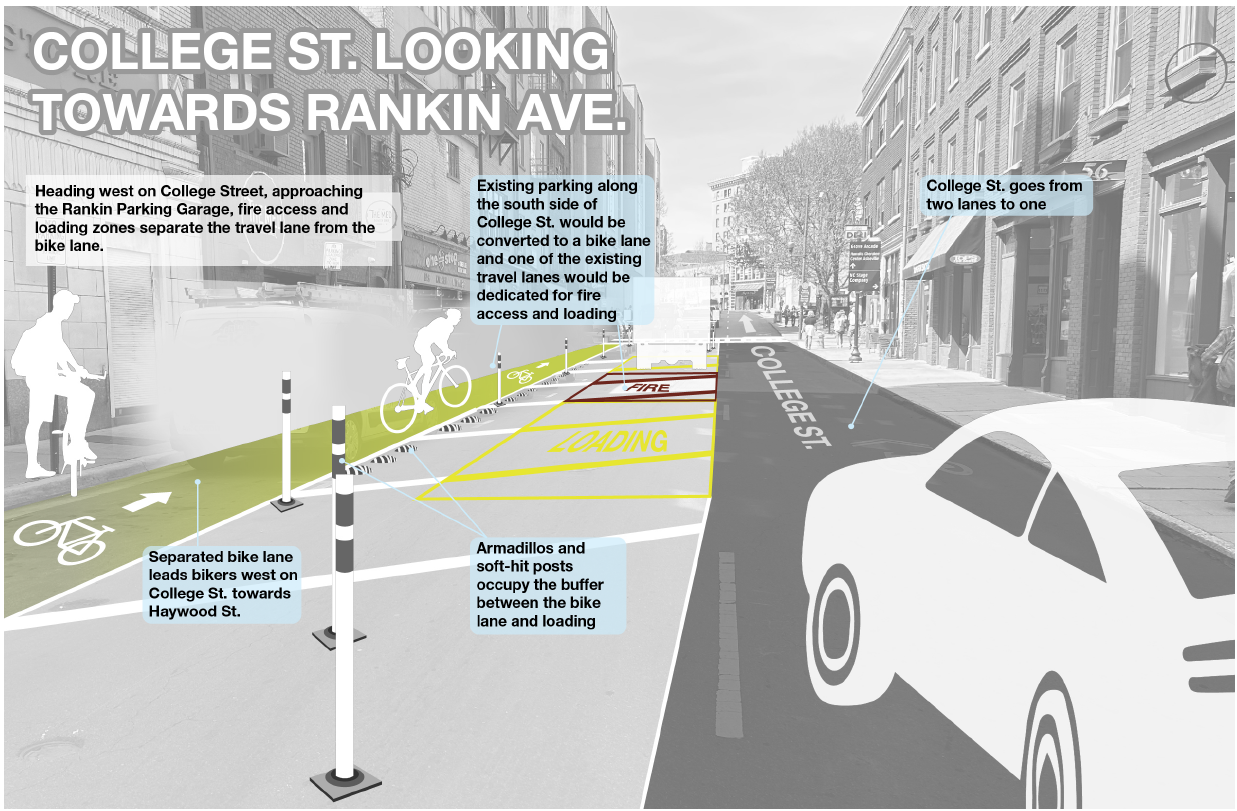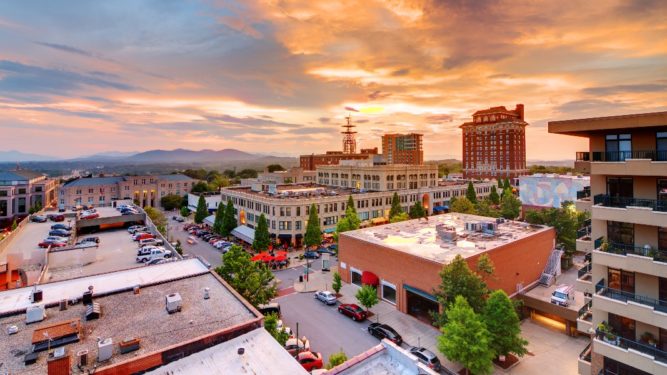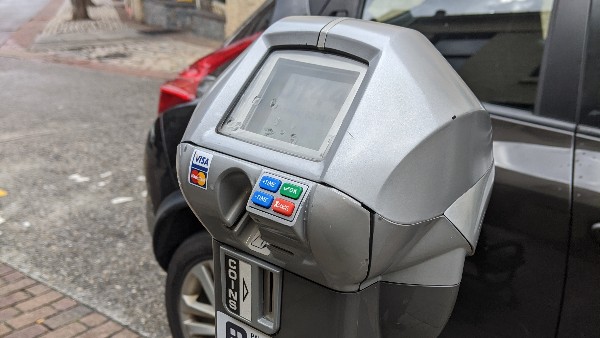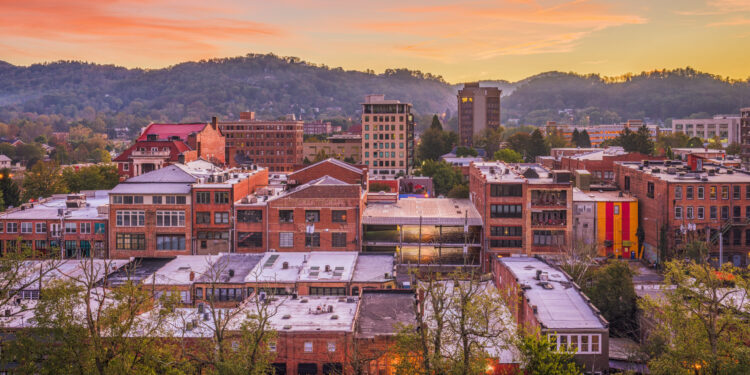Overview
This project will implement improvements on sections of College Street and Patton Avenue in the core of Downtown Asheville with the goal of improving safety, accessibility, and equity for all users of the streets and users of the wider City transportation network. The project area specifically includes College Street between Spruce Street and Pritchard Park and Patton Avenue between Pritchard Park and Biltmore Avenue.
Improvements will include the following:
- Pedestrian ramp improvements
- Resurfacing and restriping of streets (in the Focus Area noted in the image below, striping will include buffered bike lanes, high-visibility crosswalks, and dedicated space for delivery vehicles)
- Replacement of signal poles in conjunction with Traffic Signal Replacement project
Happening Now
In an effort to support economic recovery after the impact of Helene, construction will not start until 2026, rather than 2025. In 2025, staff will continue working to prepare and issue the solicitation to select a contractor to perform resurfacing, striping and ramp work. City Council will then be asked to consider approval of the contract prior to the work being performed.
Next Milestone: Construction contract advertisement and selection
Project Background
In addition to general improvements, this project makes advances street design in consistency with adopted City plans and policies to improve multimodal transportation, particularly in Downtown. Plan alignment includes the 2009 Downtown Master Plan, the 2012 Complete Streets Policy, the 2016 Asheville in Motion Mobility Plan and the 2018 Living Asheville Comprehensive Plan. Asheville consistently ranks as one of the top cities in North Carolina for bicycle and pedestrian fatalities. Building dedicated facilities for these vulnerable users is one of the most effective ways to reduce fatalities. College Street and Patton Avenue are the main and only east-west streets through Downtown and provide key connections to east and West Asheville. Bike lanes will connect to existing bike lanes and future bike lanes in downtown and beyond.
This project also aligns with City Council’s 2036 Vision for transportation and accessibility: “Whether you drive a car, take the bus, ride a bike or walk, getting around Asheville is easy. Public transportation is widespread, frequent, and reliable. Sidewalks, greenways, and bike facilities get us where we want to go safely and keep us active and healthy. It is easy to live in Asheville without a car and still enjoy economic, academic, and social success.”
The renderings below provide a road-level view of the improvements.
Project Timeline
2022
- February: Letters sent to property owners in the corridor; Flyers delivered to businesses
- March 2: Virtual stakeholder meetings – Morning and Evening
- March 11: Press Release by City of Asheville; Email sent to stakeholders; Downtown Commission meeting, presentation and concept design
- March 17 & 19: Walking tours with stakeholders
- March 23: Multimodal Transportation Commission meeting, presentation and concept design review, voted 6-1 in support of the project
- March 24: virtual stakeholder meetings – Morning and Evening
- June 10: Downtown Commission meeting
- June 22: Multimodal Transportation Commission meeting
- September 13: Manager’s Report to City Council – staff was asked to conduct additional engagement
- October – November: additional meetings with direct stakeholders
- November 16: Public Space Management Committee meeting
- December 9: Downtown Commission meeting, voted 6-3 in support of the project
2023
- January 24: Mayor and staff met with business owners, agreed to hold one more public meeting
- April 19: Public Open House and meeting with direct stakeholders at the Collider
- April 19: June 5 – Public online survey – 642 participants.
- July 18: Loading Zone Walking Tour with businesses to discuss revisions made based on feedback
- August 22: City staff presented the final project design plan at the regular City Council meeting.
- October 10: Asheville City Council adopted a resolution reaffirming its commitment to multimodal transportation and specifically confirming support for staff to proceed with the College/Patton Bike Lane Project.
2024
- July 8, August 12, September 9: virtual public meetings for updates on projects in the Patton Avenue Corridor
2025 (estimated)
- Solicitation to select a contractor to perform resurfacing, striping and ramp work. City Council will then be asked to consider approval of the contract.
2026 (estimated)
- Project implementation
Funding
Non-profit partners, Asheville on Bikes and Connect Buncombe, funded the initial designs through local donations. The initial designs were completed by a local consulting firm, Traffic Planning and Design, in cooperation with the City of Asheville and were refined based on public feedback the City received.
A total of $100,000 is programmed in the City of Asheville’s Capital Improvement Plan (CIP) for implementation, including costs for:
- Pavement markings
- Vertical delineators
- Signage
- Traffic control during installation
Supporting Documents
Examples of Left-Side Bike Lanes in Other Cities
Living Asheville: A Comprehensive Plan For Our Future (2018)
Asheville in Motion Mobility Plan (2017)
City of Asheville Complete Streets Policy (2012)
City of Asheville Comprehensive Bicycle Plan (2008 – superseded by Asheville in Motion Plan)
Related Projects
Downtown Patton Avenue Corridor Feasibility Study
Patton Avenue Sidewalk Accessibility Improvements
Carter-Ann-Patton Stormwater Project
Contact Information
Jessica Morriss, Assistant Director, Transportation Department
Susannah Horton, Project Manager, Capital Management Department
